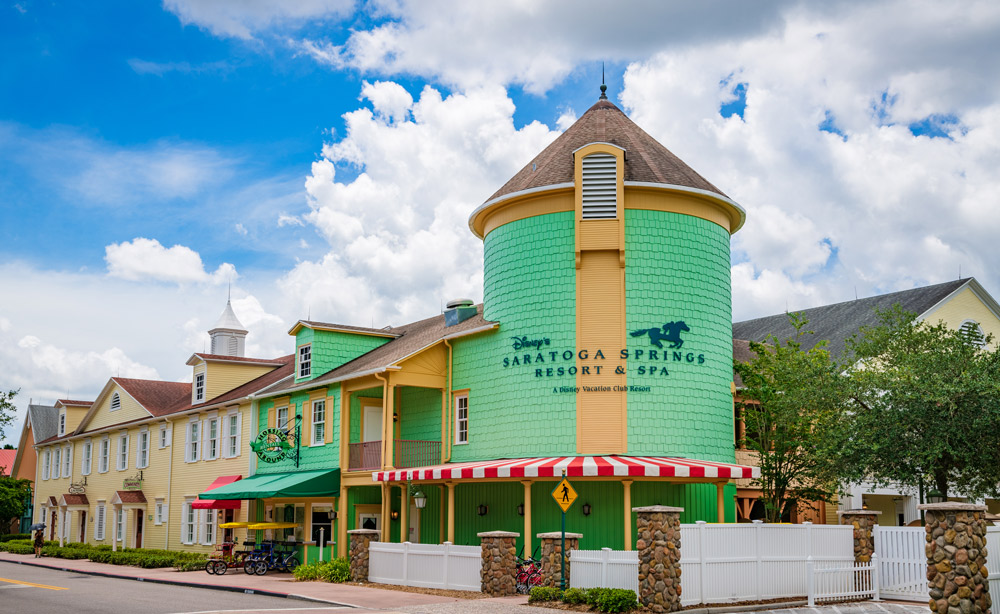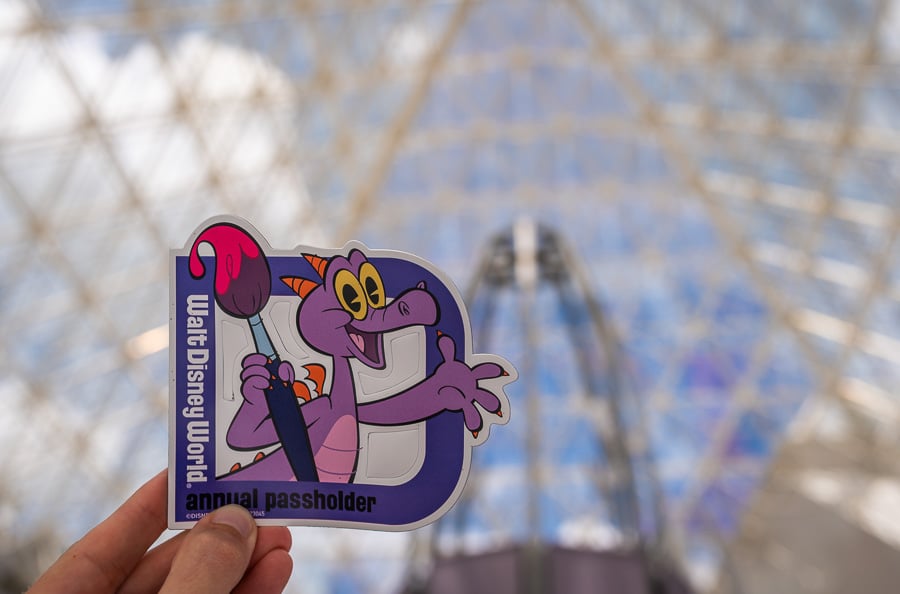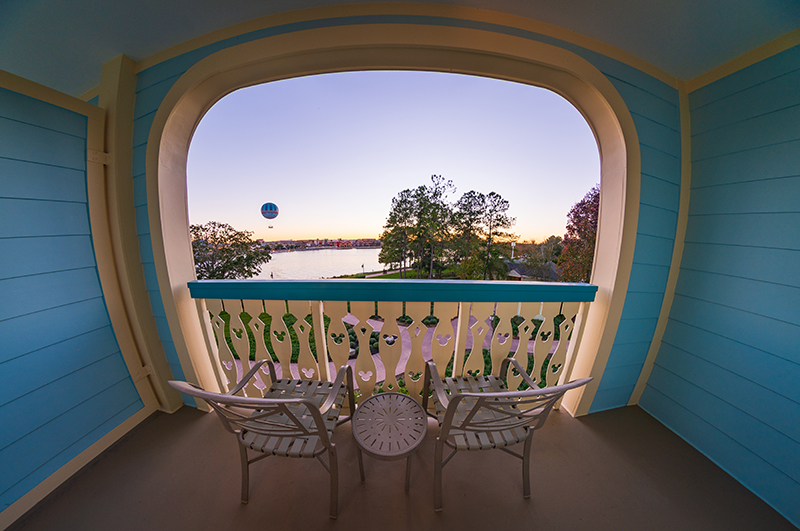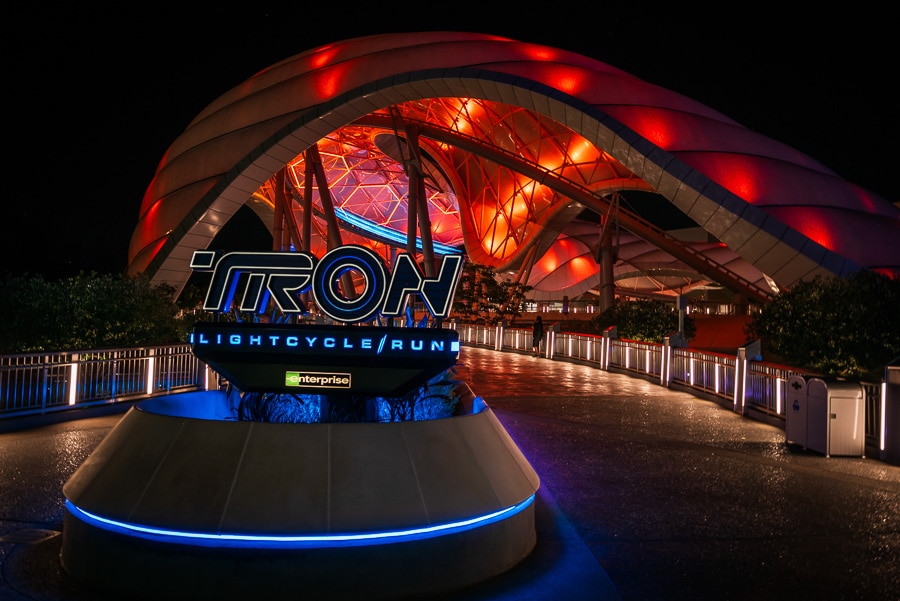If you’re debating Disney Vacation Club, you might’ve heard that it’s cheaper to purchase via the resale market than directly via DVC. You might be wondering whether there’s a catch to saving so much money, as there’s no such thing as a free lunch. This unbiased comparison does the math and helps you determine which route is better. (Updated May 31, 2025.)
The “unbiased” part of this is important. As always, we’ll be honest with you: we bought DVC via the resale market, but Disney Vacation Club absolutely is not for everyone. That’s the first point that it’s critical to understand. Disney Vacation Club has emotional marketing that tugs at the heartstrings and makes the decision seem like a no-brainer. It really isn’t.
The second is that there’s no one-size fits all answer to this question of DVC resale vs. direct. Both Disney and the big resellers put tremendous energy and marketing budgets into, ahem, persuading people that they are the best route. In fact, there’s a good chance this is the only comparison you’ll find on a website that is not sponsored by a reseller (or directly on a resale website). At the risk of pointing out the obvious, a reseller sponsoring a post about DVC resales vs. direct is about as unbiased as Philip Morris sponsoring a study about the health benefits of tobacco!
With that out of the way, let’s dig into the considerations. First and foremost, this is NOT simply a math problem. Disney Vacation Club resellers oversimplify this decision by comparing their per point costs to those directly from DVC. And in that case, they win by a wide margin. That’s fairly indisputable.
It’s also a bit reductionist. For starters, you might have heard about resale restrictions. Anyone who purchases DVC resale contracts for the original 14 resorts at Walt Disney World, Disneyland, and 3 stand-alone locations will only be able to use their points at those 14 existing resorts.


In other words, resale buyers who purchase today will not be able to use their points at at Cabins at Fort Wilderness, Disney’s Riviera Resort, Villas at Disneyland Hotel, Disney Lakeshore Lodge, and whatever else is built after that. Moreover, buyers who purchase points for those resorts via the resale market will not be able to use their points anywhere else.
This is very restrictive, and should alone make buying Riviera or the Villas at Disneyland Hotel from the resale market a non-starter unless you are 100% sure that’s the only place you ever want to stay. Even if you’re comfortable with that, you should also consider the possibility that you might someday want–or need–to sell your DVC contract. That resale restriction could significantly impact its value down the road.
This is just the latest restriction in a series made to discourage resale purchases and encourage prospective buyers to purchase directly from Disney Vacation Club. The other big one is more significant from a usage perspective, and muddies the waters on the math of DVC resale vs. direct.


Several years ago, Disney Vacation Club implemented another rule change that new DVC Members who do not purchase their ownership interest directly will not have access to “Membership Extras,” such as exclusive Member experiences and discounts.
At that time, Disney’s explanation for the move was that it’d be a “very positive step to ensure that, going forward, our Members who purchase directly from Disney Vacation Club receive a premium advantage — in addition to all the magic that Disney has to offer.” From Disney’s perspective, this move makes sense.
However, let’s call it what it is: a protectionist attempt to reverse the trend of declining direct sales. It was motivated by the desire to offer a “premium advantage” to those who purchase directly from Disney to the same extent that a bear’s love for salmon is motivated by the US crude oil market. Which is to say, in no way whatsoever.
This resale restriction hurts current owners by virtue of decreasing the value of their contracts–the only benefit here is to Disney. It’s another way to push potential customers who are aware of the resale market towards a direct purchase.


In this era of information, it’s much easier to quickly gain perspective with a quick Google search (just look at the comments from readers on our Disney Vacation Club Buying Guide who found it after hearing the sales pitch).
This is something with which timeshare salespeople did not have to contend in the 1990s. Not only was there no highly visible resale market allowing for easy price comparisons, but there was no in-depth financial analysis of timeshares online.
It was much easier for potential customers to get caught up in the sales pitch without the counter-balance of the actual monetary implications of the purchase, and blindly buy. (Fortunately, in the 1990s, DVC was an unequivocally good deal!) Free access to this information has undoubtedly made selling timeshares more difficult, even for Disney Vacation Club which offers a premium that avoids many of the pitfalls of traditional timeshares.


As an existing DVC Member, I can’t really complain. Disney’s practices including right of first refusal (ROFR) and price increases safeguard the value of our contract, preventing it from becoming a money pit like other timeshares. Not only that, but new resale members not having access to certain Membership Extras makes them less crowded and competitive.
Moreover, the market value of our contract at Saratoga has actually increased in the years since we made the purchase, despite the restrictions. That’s remarkable given that it’s duration-limited with the end date now ~20 years closer.
The question is whether Disney’s restrictions on Membership Extras or resort usage should make those considering Disney Vacation Club look at a direct purchase instead of one via resale. For the purposes of brevity, we will assume you’re going to make a purchase one way or the other, and will thus overlook the threshold question of whether it’s a smart purchase to begin with. (Again, maybe not!)


Unlike the last restriction that prevents resale buyers from using their points on certain non-DVC products (which was totally meaningless because Members should rent out their points and pay for those experiences out of pocket since they are such poor uses of DVC points), this restriction does have an impact.
Not being able to use your DVC points at Riviera, FW Cabins, or the Villas at Disneyland Hotel is a bigger deal. Even then, it’s arguably not that big of a deal. The 14 “legacy” Disney Vacation Club resorts are in literally all of the prime locations at Walt Disney World. Disney Vacation Club has been added to every single monorail resort, and has nearly full coverage at the resorts near Magic Kingdom, Epcot, Hollywood Studios, and Animal Kingdom.
At this point, Disney Vacation Club has exhausted all of the ideal add-on locations and is building resorts on parcels of land that are far from ideal. In other words, any new resort at this point will be located on “the leftovers” and have to use some other hook to lure members away from the legacy resorts. Arguably, the Riviera has that with the Skyliner.


Value of Membership Extras If Buying DVC Direct
Let’s turn to Membership Extras, starting with the main one: discounted Annual Passes at Walt Disney World. Here are the Walt Disney World Annual Pass options for 2025:
- Disney Pixie Dust Pass – This is the lowest tier pass for Florida residents costs $469 plus tax.
- Disney Pirate Pass – This is the next tier up for Florida residents only, costing $829 plus tax.
- Disney Sorcerer Pass – Available only to Florida residents or eligible Disney Vacation Club members, costing $1,079 plus tax.
- Disney Incredi-Pass – The top tier with no blockout dates, and is the only tier of AP available for anyone to purchase, including non-Floridians and non-DVC members. It costs $1,549 plus tax.
Disney Vacation Club members being able to purchase the Sorcerer Pass is absolutely huge, which you can only do if you buy direct from DVC. It essentially amounts to a $470 savings per person if you don’t need or want the AP with no blockout dates. For most members, that should be an easy call–the Sorcerer Pass offers much better value for money.
Of course, this assumes you want or need an Annual Pass in the first place, which is a bold assumption and not true for most Disney Vacation Club Members. But if it is the case for you, that $470 per person savings is going to be significant. (It’s worth noting that the Sorcerer Pass is blocked out around the weeks of Thanksgiving, Christmas and New Year’s Eve; otherwise, there are no material differences between the two tiers.)


While this AP discount is far and away the largest Membership Extra that has an ascribable value, there are plenty of other perks. This means no DVC dining discounts, no shopping discounts, no access to Star View Station, Top of the World, McKim’s Mile House, and Journey into Imagination Lounges, and no admission to Member events, like the Moonlight Magic Parties. (Here’s a list of all perks for Walt Disney World.)
It’s unwise to factor dining and shopping discounts into any math for two reasons. First, many DVC Members have access to these same or better discounts via other means (Annual Passes, Disney Visa, etc.) Second, you need to keep in mind that all of these are incidental perks that are subject to change. (Speaking of which, Annual Pass sales were suspended for a few years, so no one was receiving that benefit!)
Disney itself states as much: “You should not purchase…real estate interest in a Disney Vacation Club Resort in reliance upon the continued availability…[of] Membership Extras…These incidental benefits are subject to change or termination without notice…” (This is Disney’s way of trying to rebut any reliance upon the perks as inducement for entering into the contract; if DVC guides make explicit representations as to the perks, such that the perks are selling points, they aren’t quite so easily “disclaimed away.”)


Honestly, this is a “do as I say, not as I do” kinda thing because we get a lot of value out of the incidental benefits.
We use the lounges in Magic Kingdom, EPCOT, and Disneyland every single day we’re in one of those parks. It’s nice to have a reprieve from the crowds and “free” (air quotes) refreshments, a place to charge our devices, etc. We also attend at least one or two Moonlight Magic parties per year, and some of our best Disney memories are from those exclusive events.
I would never claim the dollar value of those things is remotely on par with the premium pricing for DVC directly–the rational side of me knows better. But the emotional side can’t help but think that I’d miss those perks if we didn’t have them, and there’s certainly an emotional component to buying DVC in the first place, or visiting Walt Disney World regularly, for that matter!


DVC Math: Resale vs. Direct Purchases
The subjective vs. objective debate seems like as good of a place as any to pivot and talk dollars and cents. At the time of publication, here are current per point costs directly from Disney Vacation Club:
- Animal Kingdom Villas: $215 per point
- Aulani, Disney Vacation Club Villas – $235 per point
- Bay Lake Tower – $275 per point
- Beach Club Villas – $275 per point
- BoardWalk Villas – $240 per point
- Boulder Ridge Villas – $215 per point
- Cabins at Disney’s Fort Wilderness Resort – $235 per point
- Copper Creek Villas & Cabins – $255 per point
- Hilton Head Island Resort – $165 per point
- Old Key West Resort $215 per point
- Polynesian Villas & Bungalows – $235 per point
- Saratoga Springs Resort & Spa – $215 per point
- Riviera Resort – $235 per point
- Vero Beach Resort – $150 per point
- Villas at Disney’s Grand Californian Hotel – $330 per point
- Villas at Disney’s Grand Floridian Resort – $265 per point
- Villas at Disneyland Hotel – $245 per point


On average, resale prices are 40% to 60% off direct prices. There are a few big exceptions to that, such as the Grand Californian (which is also very expensive via resale and only offers around 25% off as a result), as well as the Polynesian and Grand Floridian, both of which are only around 33% off.
At the other end of the spectrum, the resorts located away from theme parks have deeper discounts–but also, higher maintenance fees and lower demand. We would never recommend buying at Hilton Head, Vero Beach or even Aulani unless you’re 100% sure those are exactly what you want. Even then, you might be making a mistake–that’s true whether you go resale or direct. But that’s a different subject for a different day.
Whenever we do this math, our favorite example is Saratoga Springs–because that’s where we own. But these numbers are fairly comparable for most of the resorts. Saratoga Springs currently has an average resale price of $93 (versus the direct price of $215), making it a whopping 57% off via the resale market!


Many first-time buyers opt to purchase between 150-200 points, which allows them to stay at most resorts for a week or two each year in a Studio or 1-Bedroom Villa. Even though it’s at the lower end of the spectrum, we’ll use the 150 or 200 point level because we view that as a good entry place into Disney Vacation Club.
Given that, a Saratoga Springs 150 point contract directly via Disney would cost $32,250. If you did opt for 200 points, it’d be $43,000. By contrast, the resale cost would be $13,950 for 150 points or $18,600 for 200 points. Even if we bumped up the 150 point cost to $100 (since smaller contracts do tend to be priced higher), it’s still only $15,000.
With those numbers, you’re saving over $17,000 on the initial purchase price by buying resale. That is, of course, assuming the higher per point resale cost and that you “only” need 150 points. The higher you go, the more you save–both on a per point basis and total dollar amount. You can fairly easily save over $20,000 on 200 points by buying via resale. And that’s not just at Saratoga Springs–it’s pretty much across the board!


In order to recoup that savings, you would need to purchase 4 Annual Passes at the current discount levels for ~10 years. Again, this assumes you need APs in the first place. If you do and you’re a family of 4, there’s a decent chance you also need more than 200 points! (Another factor is that Walt Disney World has been offering more and better ticket deals to the general public, undercutting the value proposition of APs in the first place for non-locals.)
This still is not an apples to apples comparison. In the case of buying resale, you’re saving that money on the initial purchase price, rather than over the course of time. If you are financing your purchase (something we do not recommend with Disney Vacation Club), you should always take the upfront savings, and buy via resale. The interest on the difference in the purchase prices will negate any long-term savings. So stop reading–there’s your definitive answer.
If you’re paying cash, the decision is a bit more difficult. One thing we’ve repeatedly stressed on this blog–and by far the most overlooked element of calculating the true value of Disney Vacation Club–is the time value of money, or the principle that money at the present time is worth more than the same amount in the future.


The earning capacity of today’s money makes it worth more than the same amount in the future. Think about it this way: if you had $17,000 in your hand today, you could place that money into a low-risk investment and have significantly more in 10 years, which is the timeline of your AP savings.
Since you’re paying for all of your future Disney Vacation Club vacations upfront as opposed to when the expenses are actually incurred (minus maintenance fees, which don’t come into play for this comparison), large portions of the initial investment in Disney Vacation Club could be invested in other ways if you were instead paying for your room each year as you vacationed.
Suffice to say, in the first year you’d earn $850 on that $17,000 assuming a 5% return. That’s simple math without compound interest–in actuality, the return increases with each subsequent year the money is invested.
This is one reason why the purported savings claimed with Disney Vacation Club are dubious. With that said, it’s an admittedly big assumption that people will invest money instead of purchasing Disney Vacation Club. It’s fair to say that for most people, it’s either buying DVC or spending the money they could use towards the initial purchase price some other way.


So, where does that leave a decision to purchase DVC directly or via resale? If we were in the market for Disney Vacation Club today, this would be a tough decision. I really hate the idea of forfeiting the AP discount, as many people will derive a lot of value from it. I’m also concerned that going forward DVC will actually increase Membership Perks to help bolster sales and draw a greater distinction between direct and resale purchases. We do love those incidental benefits.
On the other hand, direct prices are nothing short of excessive and the gap between the two is only growing. And since the whole point of Disney Vacation Club is to save money and lock-in lifelong Walt Disney World or Disneyland vacations as inexpensively as possible, I would probably be inclined to purchase via the resale market.
If we’re being rational and objective about DVC, which is necessary when it comes to any $10,000+ purchase (unless money is no object to you–in which case, why’d you read this?!), I think taking the upfront savings wins out for most people debating DVC resale vs. direct. There are undoubtedly some prospective purchasers reading this who might have specific reasons for wanting to buy direct, and that’s totally fair and understandable. But absent compelling justifications, resale is probably the best route. At the very least, this comparison should give you proper food for thought so you can make an informed decision for yourself!
If you’re thinking about joining DVC, be sure to read our Ultimate Guide to Disney Vacation Club. This covers the pros & cons, resale v. direct, how much money you’ll save, and other important things to know before taking the plunge. If you still can’t decide whether membership is right for you, “try before you buy” with the recommendations in How to Save BIG on Deluxe Disney Accommodations Renting DVC Points.
Your Thoughts
If you’re in the market to purchase Disney Vacation Club, what do you plan on doing in light of these new restrictions? Do you agree or disagree with our assessment? If you’re an existing Member, what do you think? Share any questions, tips, or additional thoughts you have in the comments!


